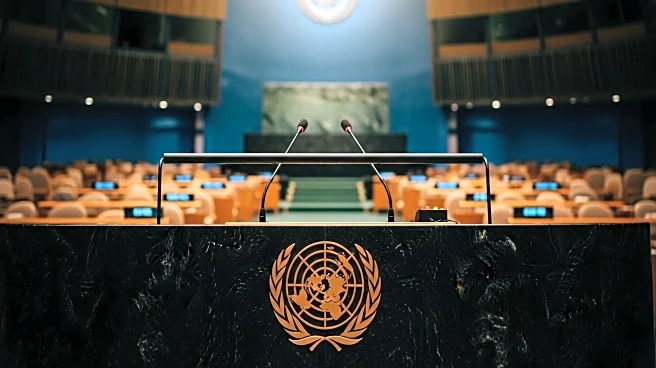What's Happening?
The United Nations General Assembly has voted to permit Palestinian Authority President Mahmoud Abbas to deliver his address to the annual meeting of world leaders through video. This decision follows the United States' revocation of Abbas's visa last month, which prevented him from attending the assembly in person. The vote saw overwhelming support, with 145 countries in favor, only five against, and six abstentions. The move highlights ongoing diplomatic tensions between the U.S. and the Palestinian Authority, as well as broader geopolitical dynamics involving Israel and Palestine.
Why It's Important?
The decision to allow President Abbas to address the UN General Assembly via video is significant as it underscores the international community's willingness to engage with Palestinian leadership despite U.S. opposition. This development may influence diplomatic relations and negotiations concerning the Israeli-Palestinian conflict. It also reflects the UN's role in providing a platform for diverse voices, potentially impacting future discussions on Middle Eastern peace processes. The U.S. visa denial could strain relations with other countries that support Palestinian representation at international forums.
What's Next?
Following the UN's decision, President Abbas is expected to deliver his video address, which may focus on Palestinian grievances and calls for international support. The address could prompt reactions from various stakeholders, including Israel, the U.S., and other countries involved in Middle Eastern diplomacy. The situation may lead to further diplomatic discussions or actions regarding U.S. policies on Palestinian leaders' access to international platforms. Additionally, the UN's decision might influence future visa policies and international diplomatic engagements.
Beyond the Headlines
The UN's decision to allow Abbas to speak via video raises questions about the balance of power and influence within international organizations. It highlights the complexities of diplomatic relations and the role of visas in international diplomacy. The situation may also prompt discussions on the ethical implications of restricting access to global forums based on political disagreements, potentially affecting future policies on international representation and participation.










